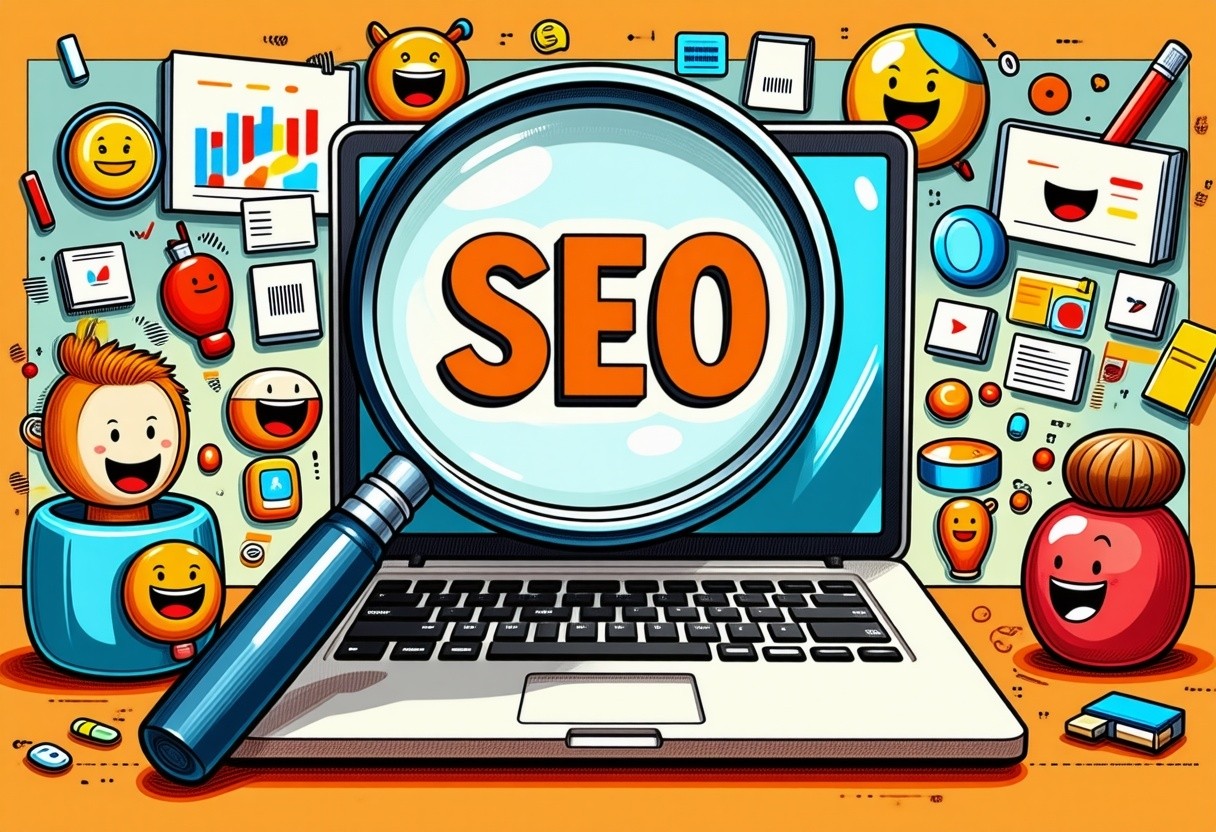Is Shopify Good for SEO? A Comprehensive Guide for Ecommerce Success
By Sejal Pandey (Sep 21, 2024)
Are you considering using Shopify for your online store but wondering if it's good for SEO? You're not alone. Many ecommerce entrepreneurs and store owners want to know if Shopify can help them rank highly in search engine results and attract more organic traffic. In this article, we'll dive deep into Shopify's SEO capabilities and provide you with a comprehensive guide to optimizing your Shopify store for search engines.
Why SEO Matters for Your Shopify Store
Before we explore Shopify's SEO features, let's understand why SEO is crucial for your online store's success. Consider these statistics:
68% of online experiences begin with a search engine
53.3% of all website traffic comes from organic search
The first organic search result has an average click-through rate (CTR) of 28.5%
These numbers demonstrate that if you want to drive traffic and sales to your Shopify store, you need to optimize for search engines. By ranking high in search results for relevant keywords, you can attract more qualified leads and increase your conversion rates.
Shopify's Built-in SEO Features
Shopify offers several built-in features that can help you optimize your store for search engines:
Editable title tags and meta descriptions: Shopify allows you to customize the title tags and meta descriptions for your pages and product pages. These elements help search engines understand what your content is about and display relevant information in search results.
Automatic sitemap generation: Shopify automatically generates a sitemap for your store, which helps search engine crawlers discover and index your pages.
Canonical tags: Shopify adds canonical tags to your pages to prevent duplicate content issues that can hurt your SEO.
SSL certificates: All Shopify stores come with a free SSL certificate, which is a ranking factor for Google.
Shopify App Store: The Shopify App Store offers a wide range of SEO apps that can help you optimize your store further. Some popular apps include SEO Manager, SEO Image Optimizer, and SEO Booster.
While these features provide a solid foundation for your store's SEO, there's still more you can do to optimize your Shopify store and outrank your competitors.
On-Page SEO Optimization for Shopify
On-page SEO refers to the practice of optimizing individual pages on your website to rank higher in search results. Here are some key on-page SEO elements to focus on for your Shopify store:
1. Keyword Research
Before you start optimizing your pages, you need to know what keywords your target audience is using to find products like yours. Use keyword research tools like Google Keyword Planner, SEMrush, or Ahrefs to research relevant keywords and their search volumes.
Focus on long-tail keywords that are specific to your products and have lower competition. For example, instead of targeting a broad keyword like "shoes," target a more specific phrase like "women's running shoes size 8."
2. Title Tags and Meta Descriptions
Once you have your target keywords, incorporate them naturally into your title tags and meta descriptions. Write compelling titles and descriptions that accurately describe your pages and entice users to click through from search results.
Follow these best practices:
Keep your title tags under 60 characters
Include your primary keyword near the beginning of the title
Write unique titles for each page
Keep your meta descriptions under 155 characters
Include your primary keyword and a clear call-to-action
3. Header Tags
Use header tags (H1, H2, H3, etc.) to structure your content and signal to search engines what your pages are about. Include your primary keyword in your H1 tag and use variations of your keywords in subheadings.
4. Product Descriptions
Write unique, detailed product descriptions that incorporate your target keywords naturally. Avoid copying manufacturer descriptions, as this can lead to duplicate content issues. Use bullet points and short paragraphs to make your descriptions easy to read.
5. ALT Text for Images
Add descriptive ALT text to your product images to help search engines understand what they're about. Include your target keywords where relevant, but avoid keyword stuffing.
6. Internal Links
Internal links are links from one page on your website to another. They help search engines understand your site structure and distribute link equity throughout your store. When adding internal links, use descriptive anchor text that includes your target keywords.
7. Structured Data
Structured data is a standardized format for providing information about a page and classifying the page content. By adding structured data to your Shopify store, you can help search engines better understand your content and display rich snippets in search results.
Shopify automatically adds some structured data to your pages, but you can use a Shopify app like JSON-LD for SEO to add more advanced structured data to your store.
Technical SEO for Shopify
Technical SEO focuses on optimizing the technical aspects of your website to improve its visibility and ranking in search results. Here are some key technical SEO considerations for Shopify:
1. Site Speed
Site speed is a ranking factor for Google, and it also impacts user experience. Shopify is generally fast by default, but you can further optimize your store's speed by:
Compressing images
Minimizing the use of third-party apps and scripts
Choosing a fast, responsive theme
Use tools like Google PageSpeed Insights or GTmetrix to test your store's speed and get recommendations for improvement.
2. Mobile-Friendliness
With more than half of all web traffic coming from mobile devices, having a mobile-friendly store is essential for SEO. Shopify themes are responsive by default, but make sure to test your store on various devices to ensure a seamless user experience.
Use Google's Mobile-Friendly Test tool to check if your pages are optimized for mobile.
3. URL Structure
Shopify automatically generates SEO-friendly URLs for your pages and products, but you can further optimize them by:
Using short, descriptive URLs that include your target keywords
Avoiding special characters and numbers in URLs
Using hyphens to separate words
4. Broken Links
Broken links can negatively impact your store's user experience and SEO. Regularly check your store for broken links using tools like Ahrefs or Screaming Frog, and fix any issues promptly.
5. Google Search Console
Setting up Google Search Console for your Shopify store can help you monitor your site's performance in search results, identify crawl errors, and submit sitemaps. It's a free tool that provides valuable insights into how Google views your store.
Off-Page SEO for Shopify
Off-page SEO refers to actions taken outside of your website to improve its visibility and authority in search results. The most important off-page SEO factor is backlinks - links from other websites pointing to your store.Here are some strategies for building high-quality backlinks to your Shopify store:
Create valuable, shareable content: Publish blog posts, infographics, videos, or other types of content that provide value to your target audience. When other websites find your content useful, they're more likely to link to it.
Reach out to influencers and bloggers: Identify influencers and bloggers in your niche and reach out to them for collaboration opportunities. You can offer to write guest posts, sponsor their content, or send them your products for review.
Leverage social media: Share your content on social media platforms and engage with your followers. When your content gets shared and linked to on social media, it can indirectly boost your search engine rankings.
Monitor your competitors' backlinks: Use tools like Ahrefs or SEMrush to analyze your competitors' backlink profiles and identify opportunities to earn similar links.
Link Building: Link building is the process of acquiring new inbound links to your website. It's a crucial aspect of off-page SEO, as it helps improve your store's authority and visibility in search results. Focus on building high-quality, relevant links from reputable websites in your niche.
Measuring Your Shopify Store's SEO Performance
To ensure your SEO efforts are paying off, you need to track your store's performance in search results. Here are some key metrics to monitor:
Organic traffic: Use Google Analytics to track the number of visitors coming to your store from organic search results.
Keyword rankings: Use tools like Google Search Console or SEMrush to track your store's rankings for target keywords.
Conversion rates: Monitor your store's conversion rates to see how well your organic traffic is converting into sales.
By regularly monitoring these metrics, you can identify areas for improvement and adjust your SEO strategy accordingly.
Conclusion
Shopify is a powerful platform for building and growing your online store, and it offers a solid foundation for SEO. By leveraging Shopify's built-in features and following best practices for on-page, technical, and off-page optimization, you can improve your store's visibility in search results and drive more organic traffic and sales.
Remember, SEO is an ongoing process that requires continuous monitoring, testing, and adjustment. Stay up-to-date with the latest SEO trends and algorithm updates, and always prioritize providing value to your target audience.
With the right strategy and execution, Shopify can be an excellent choice for building a successful, search engine-friendly online store. By focusing on keyword research, on-page optimization, technical SEO, link building, and performance tracking, you can help your Shopify store rank highly in search results and attract more qualified traffic.
FAQ
Is Shopify good with SEO?
Yes, Shopify is a solid platform for SEO. It offers built-in features like customizable title tags, automatic sitemap generation, and canonical tags that provide a strong foundation for your store's SEO. However, you still need to optimize your store's on-page and off-page elements to outrank your competitors.
Which SEO is better WordPress or Shopify?
Both WordPress and Shopify have their strengths and weaknesses when it comes to SEO. WordPress offers more flexibility and control over your store's technical SEO, but it also requires more manual setup and maintenance. Shopify provides a more user-friendly and streamlined experience, but it has some limitations in terms of customization.
Ultimately, the best platform for your store's SEO depends on your specific needs and resources.
Do Shopify tags improve SEO?
Shopify tags can indirectly improve your store's SEO by helping you organize your products and create a better user experience. When you use descriptive, keyword-rich tags for your products, it can make it easier for search engines to understand what your pages are about and display them in relevant search results.
However, tags alone won't significantly boost your rankings. You still need to focus on other on-page and off-page SEO factors.
How to set up SEO on Shopify?
To set up SEO on your Shopify store, follow these steps:
Research and identify your target keywords
Optimize your page titles, meta descriptions, header tags, and product descriptions with your keywords
Ensure your store is fast, mobile-friendly, and has a clear URL structure
Build high-quality backlinks to your store through content creation, outreach, and social media
Monitor your store's performance in search results and adjust your strategy as needed
How much does Shopify charge for SEO?
Shopify does not charge separately for SEO. The built-in SEO features are included in all Shopify plans, which range from $29 to $299 per month. However, you may need to invest in additional tools, apps, or services to fully optimize your store for search engines.
How can I improve my Shopify store's link profile?
To improve your Shopify store's link profile, focus on building high-quality, relevant backlinks from reputable websites in your niche. Some strategies include:
Creating valuable, shareable content that other websites will want to link to
Reaching out to influencers and bloggers for collaboration opportunities
Leveraging social media to promote your content and attract links
Monitoring your competitors' backlinks and identifying opportunities to earn similar links
Remember, the quality of your backlinks is more important than the quantity. Avoid engaging in spammy link building tactics, as they can harm your store's SEO in the long run.




